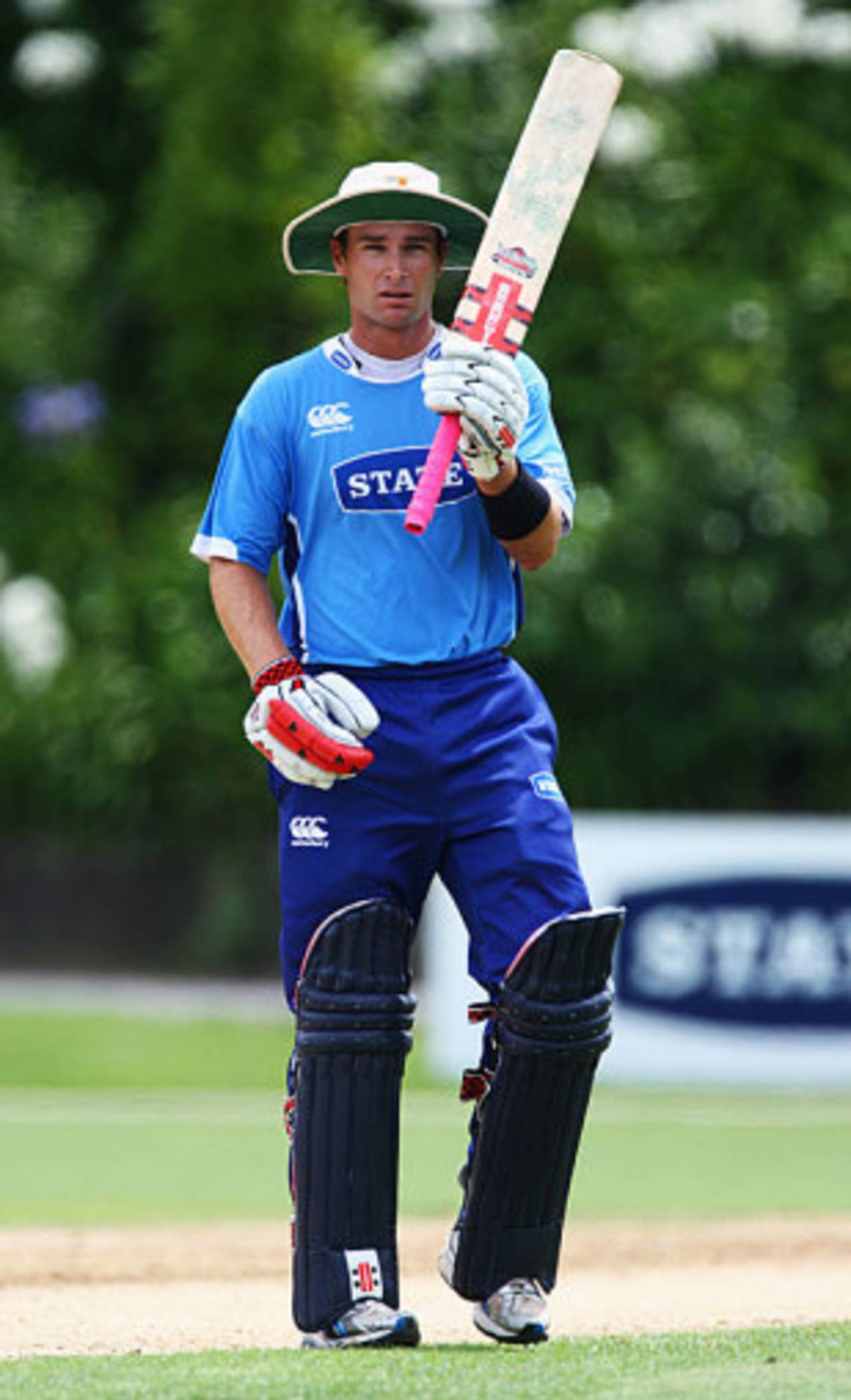Glenn Turner, New Zealand's chairman of selectors, has defended the selection of players without central contracts for the upcoming tour to Sri Lanka in August and September. Reacting to criticism over the selection of five players not on the list of
20 contracted players over the likes of Brent Arnel and James Franklin - both with retainers - Turner admitted there were flaws in the central contracts system and said he was working on a new arrangement.
Included in New Zealand's 15-man Test squad were Daryl Tuffey, Reece Young and Craig Cumming, who all missed out on central contracts last month. Young, the Auckland wicketkeeper, was picked as cover for Brendon McCullum despite Gareth Hopkins being the spare gloveman in the contract list released a fortnight ago. Hopkins was chosen in the ODI squad while a fourth wicketkeeper, Peter McGlashan, was named for the Twenty20 portion of the trip. The ODI side includes another without a contract, Nathan McCullum. Turner defended these selections, saying there were picked on merit.
"You can argue that the system is flawed. It has obviously worked for a period but you have three solid forms of the game now, not two," Turner told the Herald on Sunday. "I know people say we've got three back-up keepers and shake their heads and say 'how can only one have a contract'? Ideally, under a different system - where you were giving contracts for each form of the game - all three would have got some money and that would have been a lot fairer.
"We have Reece Young doing the Tests because we feel he is the next best gloveman; the next best gloveman after him, who also bats pretty damn well in both forms, is Hopkins; then you have McGlashan who can keep in Twenty20s but is valued more as a batting improviser in that form of the game."
According to Turner, because New Zealand were likely to play two fast bowlers, two spinners and Jacob Oram and Jesse Ryder as support seamers, Tuffey's experience of Sri Lankan conditions earned him selection ahead of the uncapped Arnel. "Do you want a newcomer to be making his debut under Sri Lankan conditions? The answer is 'no', if you can avoid it. So selection is not so cut and dried," said Turner.
Per the existing contracts system, points are allotted to each player on the list. The players with the most points - each receives a highest of 25, a lowest of one - are offered New Zealand Cricket contracts. Turner said he was looking at devising a new system that would allocate points based on each format of the game and rate that against New Zealand's itinerary for the upcoming year.
"What I've noticed is that you could, let's say, be ranked 11th on the Test list which would give you 18.75 points. If you don't get any points in the ranking for limited-overs cricket, that 18.75 points would put you 29th on the overall list," he said. "All of a sudden people see somebody who is playing Test cricket who doesn't have a contract - who is not even close to a contract - and they think how could that possibly be?
"The other example is that if you got 16th in both forms of the game, you would end up this year with a contract 15th on the list, which gives you a decent retainer [$90,000] and yet you're 16th in line when it comes to 15-man squads. So you're not selected in either form and yet you've got a contract."
Heath Mills, the New Zealand Cricket Players Association executive manager, said he could not see "wholesale changes" when the current contract system ends next year. "We have to figure out how to factor Twenty20 into the equation but at the same time it is important we still put our focus on the longer form of the game. That's the form of the game the players want to see protected."
